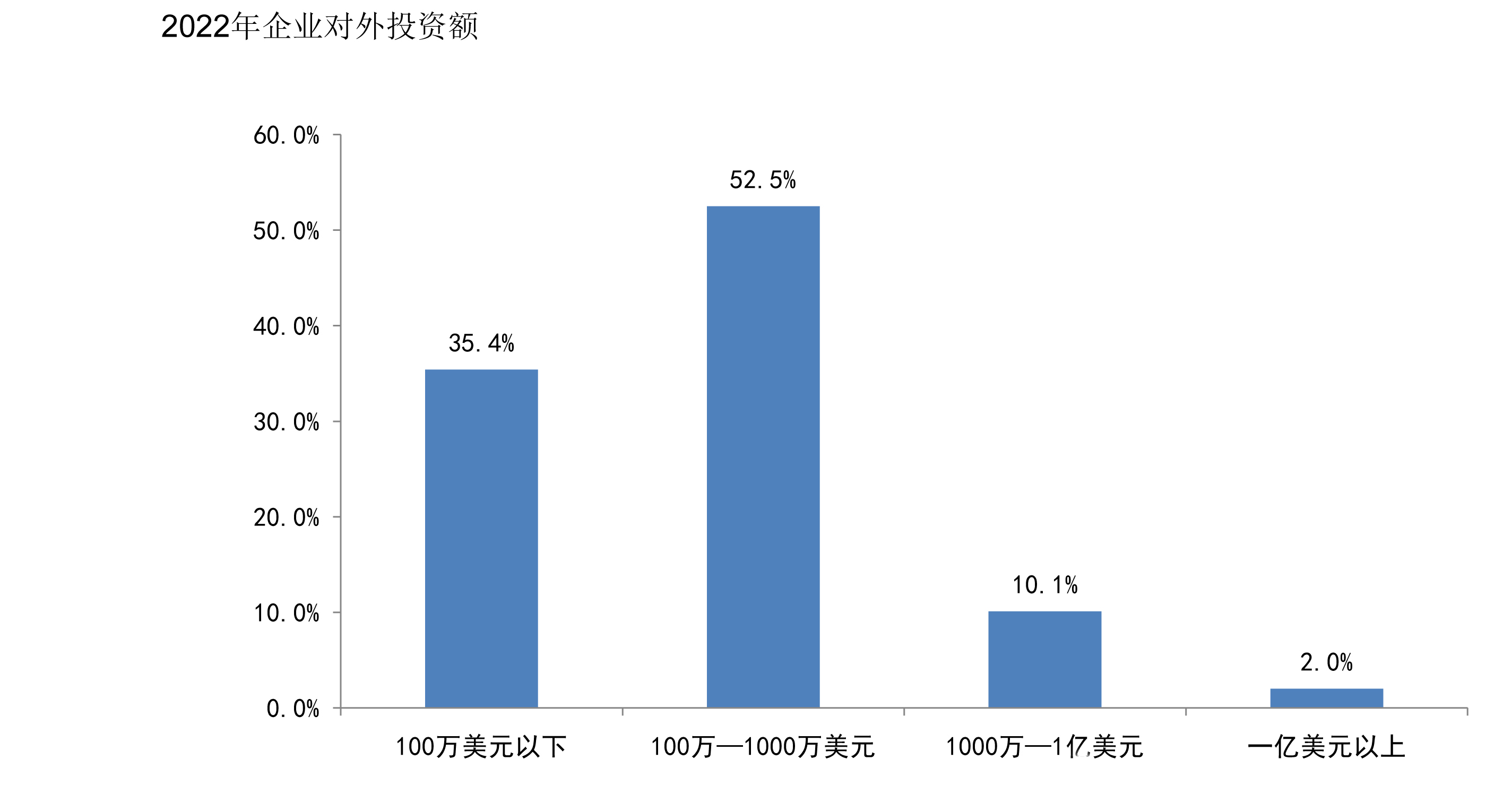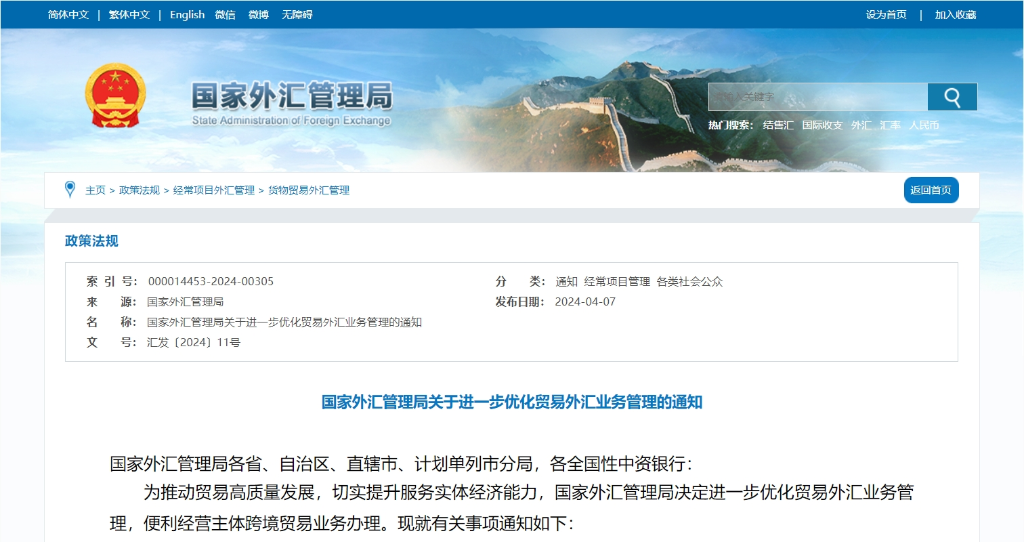Source: China Trade News Author: Our reporter Zhang Fan 2024-04-03 08:46:38
At the regular press conference in March 2024, the China Council for the Promotion of International Trade released the Survey Report on the Status Quo and Intention of Chinese Enterprises' Overseas Investment in 2023 (hereinafter referred to as the "Report"). The report shows that in 2023, in the face of weak global cross-border investment, more than 80% of the surveyed Chinese enterprises expanded and maintained their overseas investment intention, an increase of nearly 10% compared with 2022, and more than 90% of the enterprises are optimistic about the future prospects of overseas investment. This newspaper has dedicated a special page to introduce some of the contents of the report, and show some of the charts.
According to the report, the questionnaire survey covers more than 20 provinces in China, and a total of 1118 questionnaires are recovered, covering enterprises of various types, industries and sizes, and more than 60% of the respondents belong to the management of enterprises, which can reflect the real situation of Chinese enterprises' overseas investment.
According to the report, the foreign investment of the surveyed enterprises showed 12 characteristics: First, exploring overseas markets (62.9%), enhancing international brand awareness (43.6%), and serving domestic industrial upgrading (37.0%) were the main purposes of foreign investment of enterprises. Second, more than half of the enterprises in 2022 foreign investment profit margin increased or unchanged. Third, about 80% of enterprises have a low level of internationalization. By the end of 2022, 46.5% of enterprises had invested less than US $10 million overseas, and 18.8% had invested more than US $100 million overseas. Fifth, the main foreign investment methods of enterprises are greenfield investment (46.4%), overseas mergers and acquisitions (32.3%), and holding overseas shares or financial products (16.5%). More than 60% of enterprises consider using RMB for overseas investment, and 77.6% of enterprises are more willing to use RMB for overseas investment. Nearly half of enterprises prioritize manufacturing (48.4%), followed by wholesale and retail (29.9%), leasing and business services (29.9%). Eighth, the foreign investment of enterprises has a strong role in promoting China's export trade, 63.2% of enterprises increase the export volume to the host country after carrying out foreign investment. Ninth, the industrial chain layout of the industry to which the enterprise belongs is relatively stable, and 70.7% of the enterprises reflect that the industrial chain of their industry has no intention to migrate abroad. Countries jointly building the Belt and Road Initiative are the first choice for outbound investment (66.9%), followed by the European Union (10.8%). Enterprises are most concerned about regulatory compliance risks (47.8%) and lack of talents (56.8%). Nearly 80% of enterprises have encountered compliance problems in the process of investment and production and operation in the host country, and more than 50% of enterprises have set up independent compliance departments.
According to the analysis of the report, under the new development pattern, more than 80% of enterprises will expand or maintain the status quo of overseas investment, enterprises are more optimistic about the investment prospects of RCEP member states, and protectionism is not conducive to Chinese enterprises' overseas investment.
To this end, the report recommends that government departments strengthen the guidance of enterprises' outbound investment policies, improve the service system for enterprises' outbound investment, and protect the legitimate rights and interests of enterprises in outbound investment. It is suggested that trade and investment promotion agencies and business associations improve public services for enterprises' outbound investment, guide enterprises' outbound investment compliance operations, and reflect the reasonable demands of enterprises' outbound investment.
The report makes the following three recommendations for Chinese enterprises' outbound investment:
First, we will actively align different types of overseas investment policies. We will take the initiative to align various outbound investment policies, for example, accurately and timely grasp the investment opportunities brought by various economic and trade agreements such as the Belt and Road Initiative and the Regional Comprehensive Economic Partnership (RCEP), and strengthen the docking with overseas economic and trade cooperation zones. When choosing the direction of foreign investment, enterprises should try their best to get closer to the categories that are encouraged and avoid investing in the categories that are restricted or prohibited. We will strengthen investment and cooperation with overseas high-tech and advanced manufacturing enterprises, and improve the success rate of domestic approval.
Second, strive to practice compliance operations. Have a thorough understanding of the relevant laws, regulations and regulatory requirements of the target country or region on cross-border investment, and have a comprehensive grasp of the specific provisions of the target country or region on market access, industry supervision, foreign exchange management and other aspects. Pay attention to the customs and regional culture of the target country or region, avoid possible obstacles in the process of project implementation, and ensure that the management and operation of the institution established abroad is always legal and compliant. Through the identification of non-territorial compliance documents and the identification of compliance risks in the industry, the adjustment of trade methods, the planning of customs duties, the sorting and improvement of supporting systems, and the operation monitoring and debugging improvement of compliance mechanisms are carried out to further strengthen the ability of enterprises themselves. We will employ third-party professional institutions to undertake, act as agents and handle extraterritorial dispute settlement to help enterprises better cope with cross-border investment risks and crises.
Third, we intensified efforts to fulfill our social responsibilities. Balance the relationship between enterprise development and fulfilling social responsibility, and formulate scientific and reasonable corporate social responsibility strategic planning according to the time and place. Take the initiative to assume and fulfill social responsibilities, establish a good image of a trustworthy and responsible enterprise by carrying out public welfare activities that are beneficial to the local society and people, and give back to the local society and people.
(Article: Reporter Zhang Fan, data source: China Council for the Promotion of International Trade, photo beautification: Geng Xiaoqian)
Responsible Editor: Ge Yan









